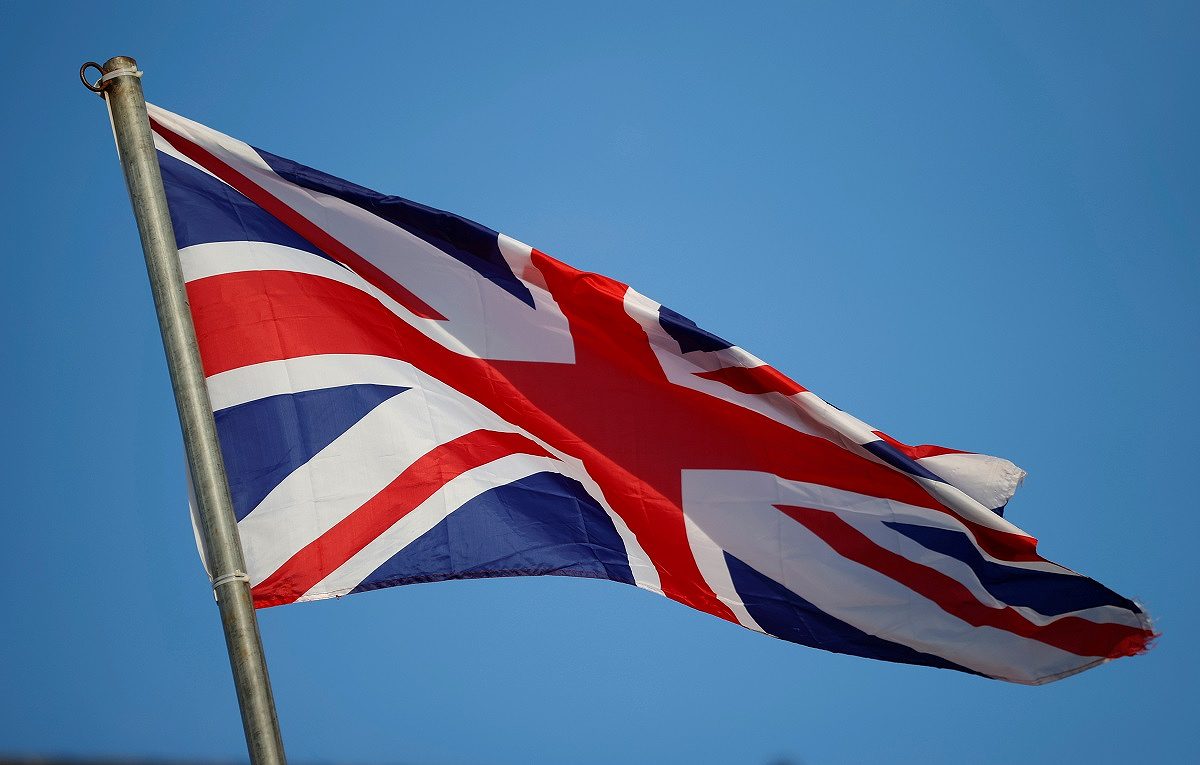
Union Jack flag flies above a Unionist mural in Larne, Northern Ireland December 30, 2020.
14:47 JST, February 1, 2021
With Britain’s application to join the Trans-Pacific Partnership, the 11-nation trade agreement has taken a step toward expanding its framework.
China, the world’s biggest trader, has expressed interest in joining the TPP, but the pact requires the acceptance of high-level rules to promote free trade. If member countries, including Japan and Australia, make concessions on those rules in the upcoming negotiations with Britain, that could set a precedent for the agreement.
Economic revitalization minister Yasutoshi Nishimura, who also is in charge of the TPP, welcomed Britain’s announcement. “Britain is a global strategic partner that shares fundamental values with our country,” Nishimura tweeted Sunday.
New Zealand’s Trade and Export Growth Minister Hon Damien O’Connor, who is in charge of coordinating applications, said in a statement: “We believe the CPTPP (Comprehensive and Progressive Trans-Pacific Partnership) can provide leadership in our region and beyond to drive post-COVID economic and trade recovery. The U.K.’s move to join the CPTPP underlines the agreement’s importance in this regard.”
In 2010, eight countries, including the United States and Australia, began negotiations on the TPP. Japan joined in 2013. In 2015, a broad agreement was reached among 12 countries, but the U.S. administration led by former President Donald Trump decided to withdraw.
The remaining 11 countries signed the agreement, which came into effect in December 2018.
It calls for a high degree of freedom in trade, including nearly 100% elimination of tariffs and a ban in principle on subsidies to state-owned enterprises.
Nishimura said, “We expect Britain to demonstrate a strong commitment to fully meet its high standard obligations.”
The focus of the negotiations will be to what extent Britain accepts the TPP rules. For example, Britain is cautious about an ISDS, or investor-state dispute settlement clause that allows companies to seek arbitration proceedings against a government. This kind of clause was not included in the Japan-Britain economic partnership agreement, which took effect in January this year.
In November last year, Chinese President Xi Jinping announced that China would positively consider joining the TPP. China apparently intends to take the initiative in international trade in the absence of the United States. However, many are skeptical about whether China will accept the TPP rules as they are. It may ask for changes.
In negotiations with Britain, the participating countries must balance expansion of the framework and preserving its rules while keeping an eye on developments in countries such as China, South Korea and Thailand, which are interested in the TPP.
Top Articles in Business
-

Prudential Life Insurance Plans to Fully Compensate for Damages Caused by Fraudulent Actions Without Waiting for Third-Party Committee Review
-

Narita Airport, Startup in Japan Demonstrate Machine to Compress Clothes for Tourists to Prevent People from Abandoning Suitcases
-

Japan, U.S. Name 3 Inaugural Investment Projects; Reached Agreement After Considerable Difficulty
-

JR Tokai, Shizuoka Pref. Agree on Water Resources for Maglev Train Construction
-

Toyota Motor Group Firm to Sell Clean Energy Greenhouses for Strawberries
JN ACCESS RANKING
-

Japan PM Takaichi’s Cabinet Resigns en Masse
-

Japan Institute to Use Domestic Commercial Optical Lattice Clock to Set Japan Standard Time
-

Israeli Ambassador to Japan Speaks about Japan’s Role in the Reconstruction of Gaza
-

Man Infected with Measles Reportedly Dined at Restaurant in Tokyo Station
-

Videos Plagiarized, Reposted with False Subtitles Claiming ‘Ryukyu Belongs to China’; Anti-China False Information Also Posted in Japan




















